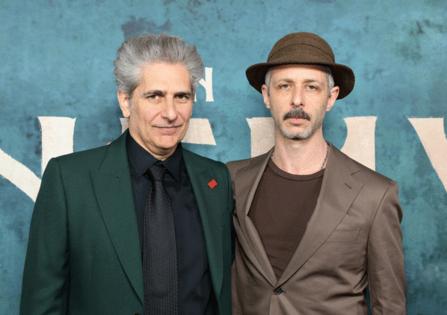Commentary: What's missing in 2 starry new productions of Ibsen and Chekhov on Broadway
Published in Entertainment News
Broadway found room this spring for classics from two titans of modern drama — Henrik Ibsen’s “An Enemy of the People” and Anton Chekhov’s “Uncle Vanya.”
It’s thrilling that at such an uncertain time in the American theater, artistic ingenuity and producing muscle were lavished on high-profile revivals of these works. The buzz-generating ensembles, pairing notable screen talents with veteran stage actors, added to the excitement.
Steve Carell is the unexpected draw of “Uncle Vanya” in a new version by playwright Heidi Schreck, directed by Lila Neugebauer at Lincoln Center’s Vivian Beaumont Theater. Jeremy Strong and Michael Imperioli are the marquee names of “An Enemy of the People” in a new adaptation by playwright Amy Herzog, directed by Sam Gold at Circle in the Square.
These creative teams promise fresh contemporary takes on watershed dramas that cleared away the cobwebs of the 19th-century stage. Moving away from melodrama, Ibsen and Chekhov gave the green light for theater in Europe and beyond to move into the 20th century with unabashed artistic seriousness. Their work was the opposite of stodgy. The realism they were ushering in had a radicalism that is difficult for us to recapture in an age that owes so much to the legacy of these writers.
Musty retreads of Ibsen and Chekhov, besides being counter to the maverick spirit of their play, can be soporific endurance tests. I’m still recovering from the National Actors Theatre production of Ibsen’s “The Master Builder,” directed by Tony Randall at Broadway’s Belasco Theatre in 1992. Playwrights who rebuked bourgeois safety when they were alive deserve better than to be given the masterpiece mausoleum treatment.
Even the Moscow Art Theatre, from which Chekhov’s plays emerged, has recognized that heritages need to be reinvented. I expected ruthless tradition when the Moscow Art Theatre came to the Brooklyn Academy of Music in 1998 with “The Three Sisters” but was pleased to discover the bracing experimental nature of Oleg Yefremov’s stylized production in one of the company’s rare American excursions.
Tradition without imagination turns theater into an academic exercise. Yet when approaching the classics, there’s a balance to be struck between freedom and fidelity. The most exciting auteurs are the keenest readers of plays. Ingmar Bergman as stage director set the standard for me in this regard. The liberties he took with Shakespeare, Ibsen, Strindberg and O’Neill were at the service of exposing the dynamic core of their dramatic works.
Thomas Ostermeier’s productions of Ibsen’s “Hedda Gabler” and “Nora” (the standard German title of “A Doll’s House”), Ivo van Hove’s “Hedda Gabler,” Dmitry Krymov’s deconstruction of “The Cherry Orchard” all confirm the precept that departures from a play are all the more potent when they illuminate something at the heart of the writing.
Probably the most satisfying Ibsen experience I’ve had was Anthony Page’s 1997 Broadway production of “A Doll’s House,” starring Janet McTeer as Nora in a revival that magnified the psychology of the play without distorting its dramatic shape. Of my recent adventures in Chekhov, I remain partial to Richard Nelson’s production at the Old Globe of“Uncle Vanya,” which allowed us to eavesdrop on the characters with audio headsets that permitted the actors to perform their roles as though they were conferring in complete domestic privacy.
“Uncle Vanya,” which was published in 1897 before its premiere two years later at the Moscow Art Theatre, is rarely away from our stages for long. Pasadena Playhouse delivered a solid production, directed by Michael Michetti, in 2022. But one of the challenges of American Chekhov is the lack of resident companies that can rise to the occasion of these profoundly collaborative dramas.
...continued
©2024 Los Angeles Times. Visit at latimes.com. Distributed by Tribune Content Agency, LLC.










Comments